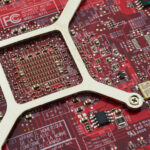Commercial Grease Trap Maintenance: Professional Solutions
Ever pondered the fate of waste that passes through your kitchen sink? For many, interceptors are neglected, yet they are pivotal in ensuring the smooth operation of restaurant waste disposal. This article explores the importance of commercial grease interceptor cleaning. It highlights how expert solutions can maintain your operations’ productivity and security. By understanding the complexities of grease trap maintenance, you can avoid possible issues resulting from lack of maintenance. Let’s delve into the critical aspects of these systems and see how expert maintenance services can reduce the burden of time, finances, and unexpected complications.
Grasping the Significance of Grease Interceptors
Grease traps are crucial in handling waste in commercial kitchens. They trap FOG (fats, oils, and grease) before they can enter the sewer system. This function is vital for ensuring effective drainage and effective waste disposal. The function of grease interceptors in preserving plumbing system functionality is crucial in the restaurant sector.
The Role of Grease Traps in Waste Disposal
Grease interceptors capture FOG to prevent it from causing plumbing issues. Frequent usage in kitchens leads to FOG accumulation, which can cause blockages and backups. These grease trap service cost shield sewer lines and nearby water bodies from contamination through proper fats oils and grease disposal. Proper upkeep ensures these systems function effectively, aiding waste management in business settings.
How Grease Traps Stop Harm
Grease traps prevent dangerous substances from entering sewage systems, thus aiding environmental protection. Without them, excessive FOG can cause sewage overflows, threatening aquatic ecosystems and community well-being. These traps also lessen unpleasant odors, which can adversely impact a dining experience and image. Consistent servicing not only maintains them working but also highlights a dedication to eco-friendly methods in the food industry.
| Grease Interceptor Role | Advantages |
|---|---|
| Captures FOG | Prevents clogs in plumbing |
| Reduces sewage overflow | Safeguards nearby water sources |
| Masks odors | Keeps dining experience positive |
| Compliance with regulations | Prevents legal repercussions |
Industrial Grease Trap Cleaning: What You Need to Know
Knowing the grease trap cleaning procedure is crucial for businesses that generate grease waste. It ensures productivity and maintains adherence with health standards. By grasping this process, operators can effectively manage their grease traps.
The Maintenance Procedure Detailed
The grease interceptor maintenance process includes several key steps. First, specialists evacuate all materials from the interceptor. Then, they meticulously clean the inside to eliminate solidified FOG and debris. This thorough cleaning extends the interceptor’s lifespan and improves its functionality.
Signs Your Grease Trap Needs Cleaning
Identifying when a grease interceptor needs cleaning can prevent future plumbing problems. Watch for these indicators:
- Reduced flow from basins, often due to trap clogs.
- Unpleasant smells from the unit, suggesting accumulation.
- Visible accumulation of FOG around the trap.
Using grease trap inspection services provides an advance view at these problems. This permits for prompt measures, saving time and expenses on emergency repairs.
| Indicator of Required Maintenance | Potential Outcome | Suggested Measure |
|---|---|---|
| Reduced flow | Increased likelihood of backups | Arrange for maintenance |
| Foul odors | Risks to well-being | Request a thorough inspection |
| Noticeable FOG accumulation | Possible code violations | Perform immediate cleaning |
Benefits of Regular Grease Trap Maintenance
Regular upkeep of grease traps is crucial for the productivity and sustainability of waste management systems in restaurant settings. This process ensures businesses can reduce expenses and comply with legal requirements. It’s essential for kitchen managers to understand these benefits to ensure proper grease management.
Cost Savings Through Preventative Care
Investing in grease interceptor upkeep results in notable financial benefits for commercial kitchens. Consistent maintenance and inspections prevent expensive repairs due to failures. If grease traps malfunction or fail, businesses may face fines of thousands of dollars per day.
By focusing on preventative care, establishments can manage cost-effective grease disposal effectively. This approach assists in avoiding these hefty fines.
Compliance with Local Regulations
All restaurants must follow local compliance regulations on waste management. Regular upkeep of grease interceptors is key to meeting these requirements. Proper upkeep not only avoids fines but also supports eco-friendly practices by reducing the risk of FOG leaks.
Partnering with a reputable grease trap pumping service guarantees compliance. It also promotes a healthy work setting.
| Advantage | Details |
|---|---|
| Financial Benefits | Minimizes urgent fix expenses and lowers penalties associated with FOG spills. |
| Compliance | Ensures adherence to regional standards, avoiding legal issues. |
| Operational Efficiency | Ensures seamless functioning of waste disposal systems, boosting overall kitchen productivity. |
| Environmental Responsibility | Reduces the possibility of environmental damage from grease spills, promoting sustainability efforts. |
Simple Steps for Grease Trap Upkeep
Maintaining your grease interceptor in optimal condition is essential for seamless kitchen operations and complying with rules. A consistent routine for assessments and maintenance reduces the possibility of costly fixes and boosts efficiency. Regular maintenance not only safeguards the environment but also prolongs the durability of your grease interceptor.
Scheduling Routine Inspections and Cleanings
Creating a schedule for grease trap assessments is critical for optimal performance. The interval is based on your kitchen’s FOG output, potentially needing monthly or quarterly assessments. Regular inspection avoids clogs and guarantees effective FOG disposal.
How to Choose the Right Service Provider
When selecting a FOG management partner, look at their experience, client support, and their capacity to tailor services for you. A experienced partner will comply with regional standards and use state-of-the-art techniques. Opting for a trusted partner like Grease Trap Pumping Service ensures reliable maintenance support, allowing you to concentrate on your business.


